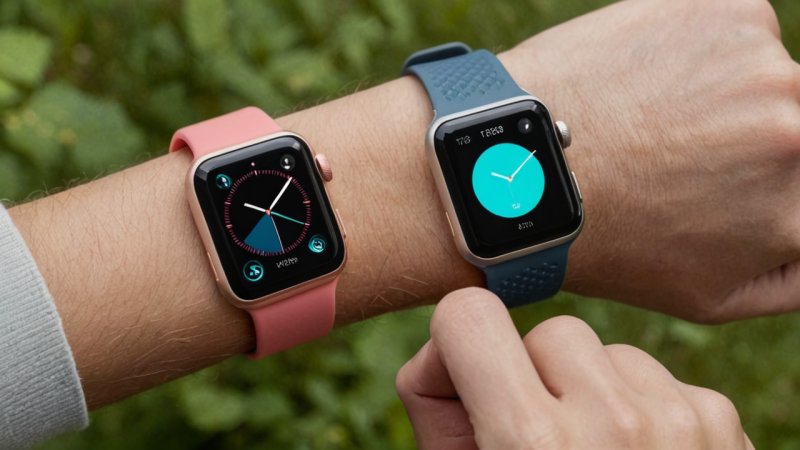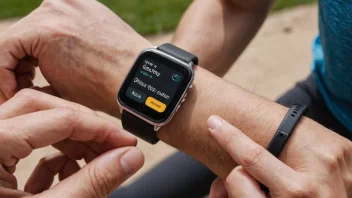In the world of fitness and health tracking, wearables have become essential tools for individuals aiming to manage their weight effectively. Among the sea of options available, two of the most popular devices are the Fitbit and the Apple Watch. Both offer a range of features designed to help users track their physical activities, monitor their health metrics, and ultimately assist in weight management. However, they cater to different preferences and lifestyles. This article compares the Fitbit and Apple Watch to help you decide which wearable is better suited for your weight management goals.
Overview of Fitbit and Apple Watch
The Fitbit brand has built a strong reputation in the fitness tracking industry, focusing primarily on health and activity monitoring. With various models ranging from basic trackers to advanced smartwatches, Fitbits are known for their user-friendly interfaces and exceptional battery life.
On the other hand, the Apple Watch combines fitness tracking with a broader range of smart features. While it offers comprehensive health monitoring capabilities, it also serves as a smartwatch, allowing users to receive notifications, make calls, and access apps directly from their wrists.
User Interface and Experience
Fitbit
Fitbit devices typically feature a simple and intuitive interface that appeals to users who want straightforward health tracking without additional distractions. The Fitbit app provides easy-to-read graphs and summaries of daily activity, sleep patterns, and calorie intake.
Apple Watch
In contrast, the Apple Watch boasts a more complex user interface with a wider range of functions. Users can customize the watch face, access apps, and receive notifications from their iPhones. This added functionality comes at the cost of a steeper learning curve for new users.
Fitness Tracking and Health Metrics
Fitbit
Fitbit devices excel in fitness tracking features, providing accurate step counts, heart rate monitoring, and sleep tracking. Many models also offer guided breathing exercises and specific goals for weight loss, making them effective for users focused on weight management.
Apple Watch
The Apple Watch offers similar fitness tracking capabilities but adds features such as ECG (electrocardiogram) and blood oxygen monitoring, which are beneficial for users interested in comprehensive health metrics. However, some users may find the emphasis on overall health tracking overwhelming if they are primarily focused on weight management.
Battery Life
Fitbit
One of Fitbit's standout features is its impressive battery life, with most devices lasting anywhere from five to seven days on a single charge. This longevity is ideal for users who prefer a device that doesn't require frequent charging.
Apple Watch
In comparison, the Apple Watch typically requires daily charging, with battery life ranging from 18 to 24 hours. While this may not be a dealbreaker for many users, those who want a low-maintenance device may find Fitbit's battery performance more appealing.
Integration with Apps and Ecosystem
Fitbit
Fitbit's app ecosystem is primarily focused on health and fitness. The app allows users to log food intake, track workouts, and connect with friends for motivation. However, it lacks the extensive app library found on the Apple Watch.
Apple Watch
Apple Watch users benefit from a vast selection of third-party apps that extend the watch's functionality beyond fitness. This integration allows users to customize their experience, but it may also lead to distractions for those primarily focused on weight management.
Cost and Value
Fitbit
Fitbit devices typically come at a lower price point than the Apple Watch, making them a cost-effective option for users looking to improve their health without breaking the bank. With various models available, users can choose a device that fits their budget and needs.
Apple Watch
The Apple Watch is generally more expensive, but it offers a range of additional features that justify the cost for many users. For individuals who value a combination of fitness tracking and smartwatch capabilities, the investment may be worthwhile.
Conclusion
In the battle between Fitbit and Apple Watch for weight management, the choice ultimately depends on individual preferences and lifestyle. If you are looking for a straightforward, user-friendly device focused on fitness tracking, the Fitbit is likely the better option. Its long battery life and dedicated health features make it a fantastic companion for weight management. However, if you want a more comprehensive smartwatch with extensive features beyond fitness, the Apple Watch may be worth the investment. Assess your priorities and choose the wearable that best aligns with your weight management goals.






